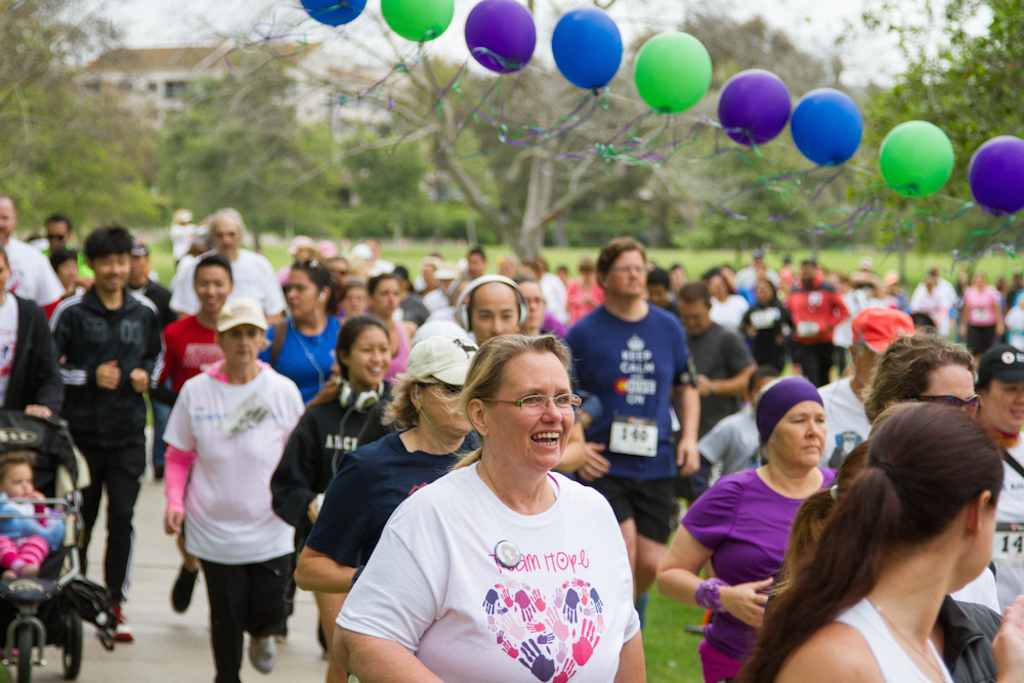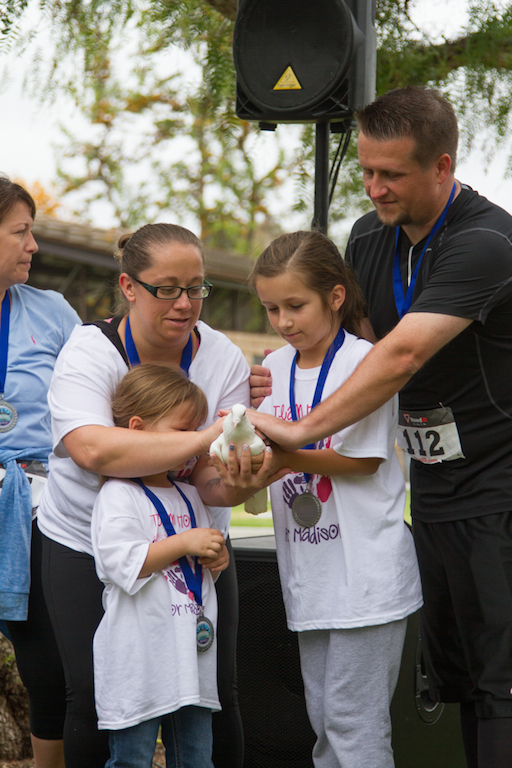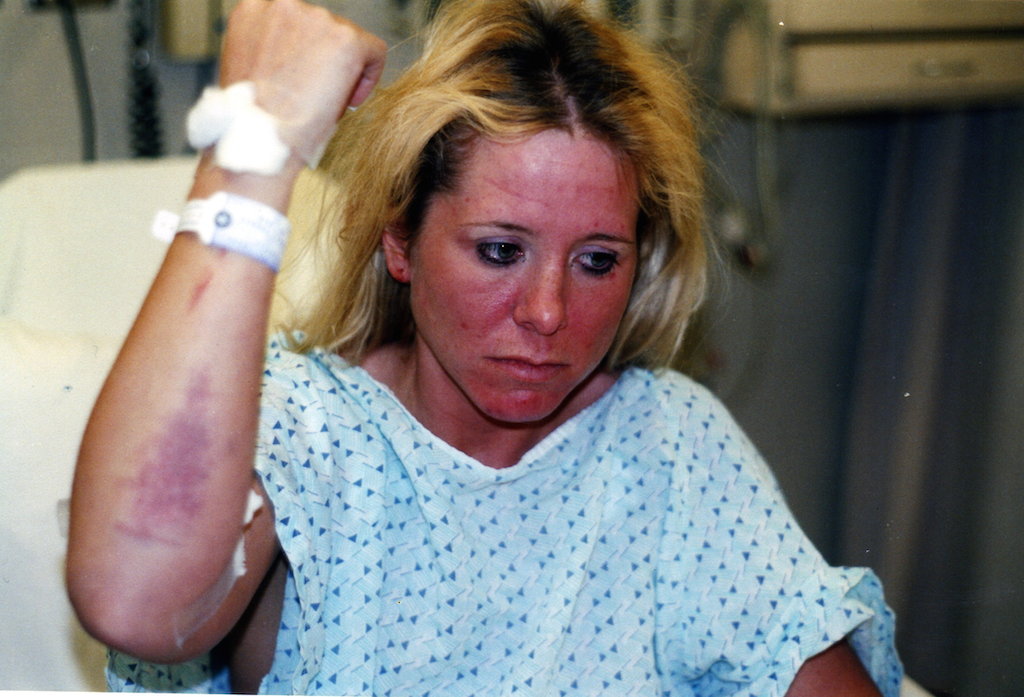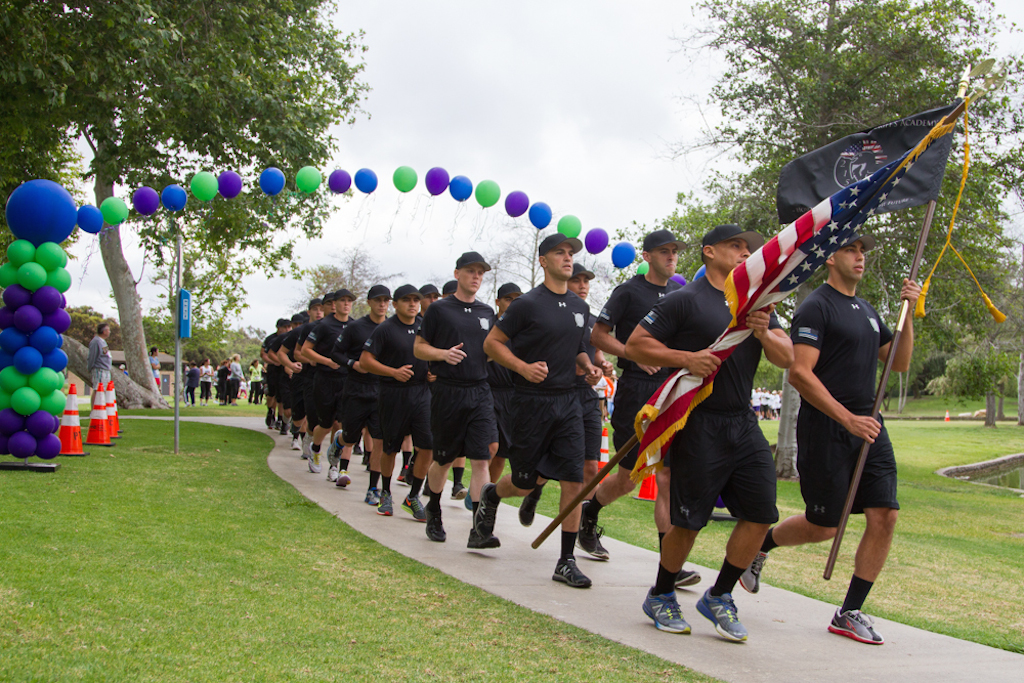Editor’s note: Crime Survivors Inc.’s 12th-annual Southern California Survive and Thrive Run Walk Health & Safety Expo with pancake breakfast, entertainment and a survivors’ dove release will be held 7 a.m. to noon Saturday, April 16 at Mason Regional Park, 18712 University Drive, Irvine. Go to crimesurvivors.org to register or for more information.
The eating disorder began when she was 8, after an uncle molested her.
At 32, Patricia Wenskunas was still battling it, still binging and purging. Her gym told her they had a personal trainer, a nurse, who was the “perfect match” to help her get healthy.
She began working with the trainer and he seemed nice enough. He exercised with her. Told her what to eat. What to drink. What vitamins to take. And, the people pleaser that she was, she did it. He teased that she was his “wallflower.”
Nine months in, he insisted she was on her treadmill too much and should sell it. He told her he would swing by her Irvine house to see how much money she could get for it.
It was a little odd, her gut told her, but nothing that would indicate the holy hell that would happen next.
He arrived with a backpack; said he found a new miracle pill that would help her lose weight — eight pounds in one week, in fact.

The 12th-annual Southern California Survive and Thrive Run Walk Health & Safety Expo will be held this Saturday, April 16. Photo courtesy of Patricia Wenskunas
For a woman with an eating disorder, it was like waving a meaty bone in front of a dog. He handed her a little yellow pill. And a foamy chocolate drink to wash it down with.
The last thing she remembers is him encouraging her to drink more.
When she came to, she was upstairs, in the loft, the room of her 12-year-old son, who was not home.
“I remember he was in his underpants sitting on my back,” she says. “The room was moving and I couldn’t really talk.”
Naked and thirsty, she struggled, saying she needed water, and then stumbled down the steps, bumping into walls, feeling him following close behind her.
She felt anesthetized, could barely lift her arms, and the next thing she knew he was pushing her back upstairs. She could hear the bath water running in the distance. Then he was on top of her, wrapping Saran Wrap around her face, smothering her, yelling that he was going to kill her, and then her son.
She began fighting. And he fought back, punching her in the face, head butting her, kicking her.
Grappling with him, she went over the loft wall, dropping 12 feet to the kitchen floor. Somehow she got up, ran naked out the front door, through the neighborhood, banging on doors and screaming for help. Finally one of the doors opened.
The police showed up. Back at her house they found the clothes that she had been stripped of neatly folded in a pile. Fingernail marks scratched the loft wall Patricia went over. While the police were there, the trainer left two rambling messages on her machine, begging for forgiveness and “crying.”
Police found the trainer back at his house and arrested him. But the nightmare was just beginning.
The trainer was charged with premeditated attempted murder. In court, though, the deputy district attorney offered him a deal to plead guilty in exchange for two years jail time, which meant he would do about a year behind bars.
Patricia sat there stunned by what she was hearing. “I actually went outside throwing up,” she says.
On sentencing day, she arrived at the courthouse with about 50 friends holding picket signs to protest the deal.
Superior Court Judge Susanne Shaw did not take kindly to this. She threw the deal out and ordered a trial. She also dropped the premeditated charge. The trainer would only be tried for assault with a deadly weapon (the Saran Wrap).

A release of doves is part of Crime Survivors Inc.’s annual event. Photo courtesy of Patricia Wenskunas
The jury found him guilty, which meant a sentence of up to 10 years in prison. But Judge Shaw told the court that he seemed like a well-dressed, well-mannered man and noted that he had a wife and a toddler and a baby on the way. She gave him 120 days, time he had already served, and set him free that day with an order to take anger management courses.
Patricia went home to bed, where she stayed for the next six months. “My eyes were black, as if I were a shell of a human being,” she says.
Then one day she heard her son wonder aloud to a friend whether his mom was ever going to get up again or if he was going to have to take care of her forever. Patricia got out of bed and called a therapist. She was done with being a victim.
It had dogged her long enough.
First at 8, by the uncle.
Then at 15 by two “friends.”
At 20 it happened again, on a date.
At 32 it was by her personal trainer.
And now, in her mind, by a judge.
“It’s almost that you get into that pattern of living a victim’s life,” she says. “Before 2002, I was vulnerable, naive. I think I had ‘victim’ written across my forehead. Maybe today I have ‘alpha.’ I’m not a victim anymore. I’m a survivor. I’m a woman on a mission to help other women break the cycle.”
One year after the assault, Patricia quit her catering business to start Crime Survivors Inc., dumping all her savings into it. On Saturday, the non-profit will hold its 12th-annual Survive and Thrive run/walk to raise money for the work it does with all sorts of victims, from survivors of rape, child abuse, elder abuse and human trafficking to families of murder victims.
One of the goals is to change the way people treat victims.
“People say, ‘Why did you have him in your house, Patricia?’ It’s time we stop blaming and shaming.”
Crime Survivors also helps victims with legal support and counseling and distributes care packages, food boxes, toys and bus passes.
Patricia also travels the state, giving speeches on behalf of victims who “can’t stand on a mountaintop and share their story,” like she does.
“I’ll never forget what happened,” she says. “I still have triggers, memories, the hairs on my arms still stand up. But I’m not angry. I’m not fearful anymore. For years, I couldn’t say his name. Now I say his name and there’s nothing there.”
The trainer lives in San Diego. In 2006, Shaw was barred from the bench for mishandling five criminal cases. Patricia was among those who had filed a complaint against the judge.
Patricia works closely now with law enforcement, singling out the Irvine Police Department for special praise.
“I really felt like for the first time in my life I was respected, treated with dignity,” she says.
Her mission now is to start a “court watcher” program to monitor judges. And her big dream: to open a crime survivors resource center.
“A one-stop-shop for hopeful healing,” she says. “But it takes money. I have none, but I have more in my heart today than I have my whole entire life. I love life. I fight for it every day.”
 Behind the Badge
Behind the Badge






